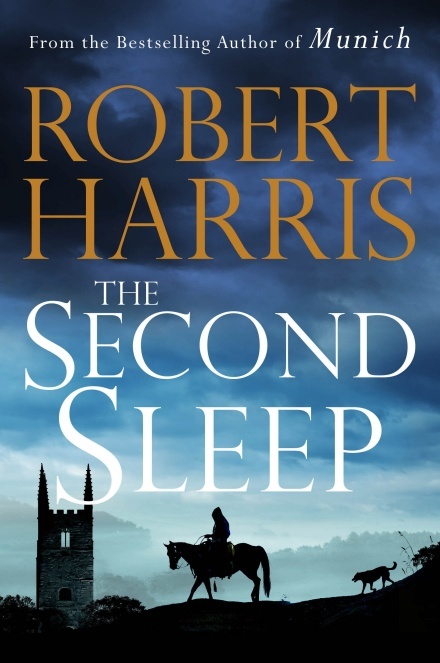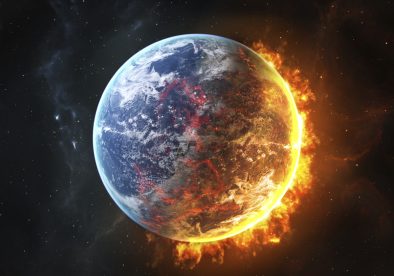The Second Sleep by Robert Harris
My rating: 4 of 5 stars
It’s impossible to talk about The Second Sleep without SPOILERS, so stop now if you intend to read the book.
All civilisations think they are invulnerable. History warns us none is.
1468. A young priest, Christopher Fairfax, arrives in a remote Exmoor village to conduct the funeral of his predecessor. The land around is strewn with ancient artefacts – coins, fragments of glass, human bones – which the old parson used to collect. Did his obsession with the past lead to his death?
As Fairfax is drawn more deeply into the isolated community, everything he believes – about himself, his faith and the history of his world – is tested to destruction.
The book starts as described. Fairfax is making his way on an old mare through the rain-soaked English countryside to officiate at the funeral of the priest of Exmoor village. We think we’re in 1468 CE but throughout the first chapter, little facts crop up that seem out of step with that time period, with the result that at chapter end we realise we are in the future.
Our civilisation crashed in or around 2022 and was followed by two centuries of ‘dark ages’ after which humanity managed to rebuild a semblance of civilisation, though it is one where the church rules with an iron-hand, having declared the cataclysm of 2022 the end times foretold in the Book of Revelations and as a result outlawed the technology of the ancients which brought down God’s punishment. The time of the cataclysm was renamed as the year 666 (for the number of the beast), which means the book is set some eight hundred years after the fall.
Under the church’s rule, progress beyond what can be reckoned to be a 17th century level of technology has stalled. But the dead priest, Father Lacy, was not as devout as might be expected and has made a study of the ancients. His library is filled with proscribed texts and artefacts, and he met his death while investigating an ancient site on a hilltop near the village. His funeral is interrupted by a stranger who proclaims Father Lacy’s death to be anything but accidental, and a series of events culminating in a dreadful storm cuts off the only road out of the village, which means Fairfax’s departure is delayed and his own curiosity about the ancients is awakened by Lacy’s books and the mystery surrounding the priest’s death.
Harris is an accomplished writer and the prose is evocative of the times and places while cracking along at a good pace, and I’ll certainly be reading more of his works. The book is full of well-drawn detail about the privations of the village folk, living in dire poverty and the life the church seems happy to consign them to. Even the language they speak has been constrained to the sum total of words used in the King James version of the bible, which means that even those people who study the ancient and more advanced civilisation struggle to explain their findings because they just don’t have the vocabulary. It reminded me of Orwellian NewSpeak, designed to constrain thought by reducing language to the most basic level.
The book culminates in a highly illegal dig at the site where Lacy died, which promises to uncover knowledge of the ancients that might transform society. And it’s at that point that the book failed to live up to my expectations. The ending felt rushed and – despite the promising build up – we are left with a simple thriller about who killed Lacy while the more interesting elements of the novel are unfulfilled.
View all my reviews


